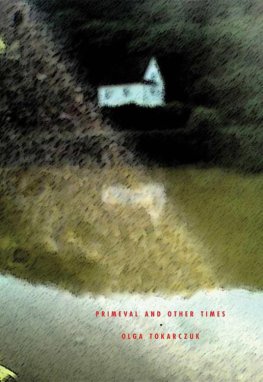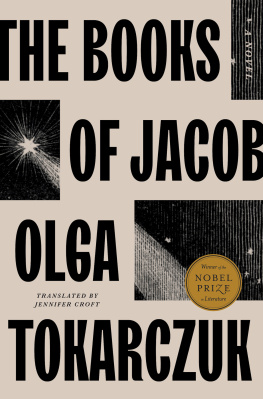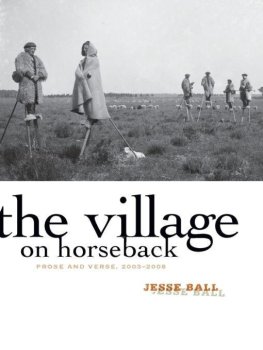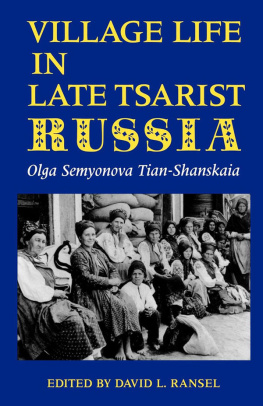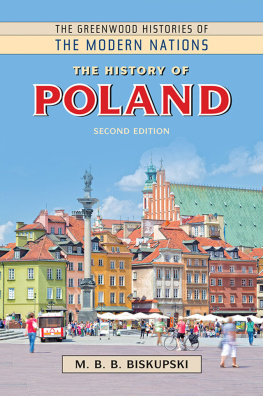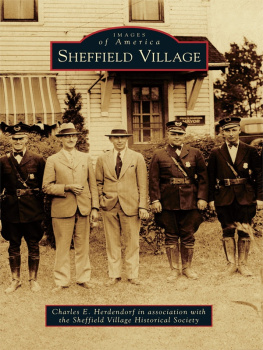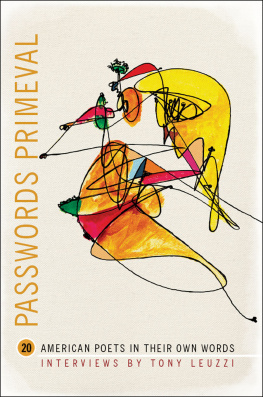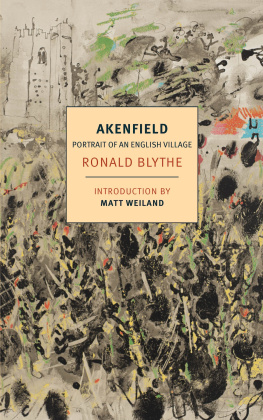Olga Tokarczuk
PRIMEVAL AND OTHER TIMES
Translated from the Polish by Antonia Lloyd-Jones
Primeval is the place at the centre of the universe.
To walk at a brisk pace across Primeval from north to south would take an hour, and the same from east to west. And if someone wanted to go right round Primeval, at a slow pace, taking a careful, considered look at everything, it would take him a whole day, from morning to evening.
To the north the border of Primeval is the road from Taszw to Kielce, busy and dangerous, because it arouses the anxiety of travel. The Archangel Raphael protects this border.
To the south the town of Jeszkotle marks the border, with its church, old peoples home and low-rise tenements surrounding a muddy marketplace. The town presents a threat because it arouses the desire to possess and be possessed. The Archangel Gabriel guards Primeval on the town side.
From south to north, from Jeszkotle to the Kielce road runs the Highway, with Primeval lying on either side of it.
On the western border of Primeval there are wet riverside meadows, a bit of forest, and a manor house. Next to the manor house theres a stud farm, where a single horse costs as much as the whole of Primeval. The horses belong to the squire, and the meadows to the parish priest. The danger on the western border is of sinking into conceit. The Archangel Michael guards this border.
To the east the border of Primeval is the White River, which separates its territory from Taszws. Then the White River turns towards a mill, while the border runs on alone, through common land, between alder bushes. The danger on this side is foolishness, arising from a desire to be too clever. Here the Archangel Uriel guards the border.
At the centre of Primeval God has raised a large hill, onto which each summer the maybugs swarm down, so people have named it Maybug Hill. For it is Gods business to create, and peoples business to name.
From the northwest the Black River runs south, joining the White River below the mill. The Black River is deep and dark. It flows through the forest, and the forest reflects its shaggy face in it. Dry leaves sail along the Black River, and careless insects fight for life in its eddies. The Black River tangles with tree roots and washes away at the forest. Sometimes whirlpools form on its dark surface, for the river can be angry and unbridled. Every year in late spring it spills onto the priests meadows and basks there in the sunshine, letting the frogs multiply by the thousand. The priest battles with it all summer, and every year it benignly lets itself be sent back to its course towards the end of July.
The White River is shallow and sprightly. It spills down a wide channel in the sand and has nothing to hide. It is transparent and the sun is reflected in its limpid, sandy bottom. It looks like a great shining lizard. It swishes between the poplar trees, winding its way capriciously. It is hard to predict its capers. One year it might make an island out of a clump of alder trees, only to move far away from them for decades after. The White River flows through copses, meadows, and common land. It shines sandy and gold.
Below the mill the rivers merge. First they flow close beside each other, undecided, overawed by their longed-for intimacy, and then they fall into each other and get lost in one another. The river that flows out of this melting pot by the mill is no longer either the White or the Black, but it is powerful and effortlessly drives the mill wheel that grinds the grain for bread.
Primeval lies on both the Black and White rivers and also on the third one, formed out of their mutual desire. The river arising from their confluence below the mill is called The River, and it flows on calm and contented.
In the summer of 1914, two of the Tsars brightly uniformed soldiers came for Micha on horseback. Micha saw them approaching from the direction of Jeszkotle. The torrid air carried their laughter. Micha stood on the doorstep in his floury coat and waited, though he knew what they would want.
Who are you? they asked in Russian.
My name is Mikhail Jozefovich Niebieski, he answered, just as he should answer, in Russian.
Well, weve got a surprise for you.
He took the document from them and showed it to his wife. All day she cried as she got him ready to go to war. She was so weak from crying, so weighed down, that she couldnt cross the threshold to see her husband off to the bridge.
When the flowers fell from the potato plants and little green fruits set up in their place, Genowefa found that she was pregnant. She counted the months on her fingers and came to the first haymaking at the end of May. It must have happened then. Now she mourned the fact that she hadnt had the chance to tell Micha. Maybe her daily growing belly was a sort of sign that Micha would come home, that he was bound to come home. Genowefa ran the mill herself, just as Micha had done. She oversaw the workmen and wrote out receipts for the peasants who brought in the grain. She listened out for the rush of the water driving the millstones and the roar of the machinery. Flour settled on her hair and eyelashes, so as she stood at the mirror each evening she saw an old woman in it. Then the old woman undressed before the mirror and inspected her belly. She got into bed, but despite the pillows and woollen socks she couldnt get warm. And as a person always enters sleep feet first, like water, she couldnt sleep for hours. So she had a lot of time for prayer. She started with Our Father, then Hail Mary, and kept her favourite, dreamy prayer to her guardian angel until last. She asked him to take care of Micha, for at war a man might need more than one guardian angel. After that her praying would pass into images of war they were sparse and simple, for Genowefa knew no other world but Primeval, and no other wars but the brawls in the marketplace on Saturdays when the drunken men came out of Szlomos bar. They would yank at each others coat tails, tumble to the ground and roll in the mud, soiled, dirty and wretched. So Genowefa imagined the war like a fight in the mud, puddles and litter, a fight in which everything is settled at once, in one fell swoop. Therefore she was surprised the war was taking so long.
Sometimes when she went shopping in town she overheard peoples conversations.
The Tsar is stronger than the German, theyd say, or The warll be over by Christmas.
But it wasnt over by Christmas, or by any of the next four Christmases.
Just before the holidays Genowefa set off to go shopping in Jeszkotle. As she was crossing the bridge she saw a girl walking along the river. She was poorly dressed and barefoot. Her naked feet plunged boldly into the snow, leaving small, deep prints. Genowefa shuddered and stopped. She watched the girl from above and found a kopeck for her in her bag. The girl looked up and their eyes met. The coin fell into the snow. The girl smiled, but there were no thanks or warmth in that smile. Her large white teeth appeared, and her green eyes shone.
Thats for you, said Genowefa.
The girl crouched down and daintily picked the coin out of the snow, then turned and went on her way without a word.
Jeszkotle looked drained of all colour. Everything was black, white and grey. There were small groups of men standing in the marketplace, discussing the war cities destroyed, their citizens possessions scattered about the streets, people running from bullets, brother searching for brother. No one knew who was worse the Russki or the German. The Germans poison people with gas that makes their eyes burst. Therell be famine in the run-up to harvest time. War is the first plague, bringing the others in its wake.
Genowefa stepped round a pile of horse manure that was melting the snow in front of Szenberts shop. On a plywood board nailed to the door was written:

